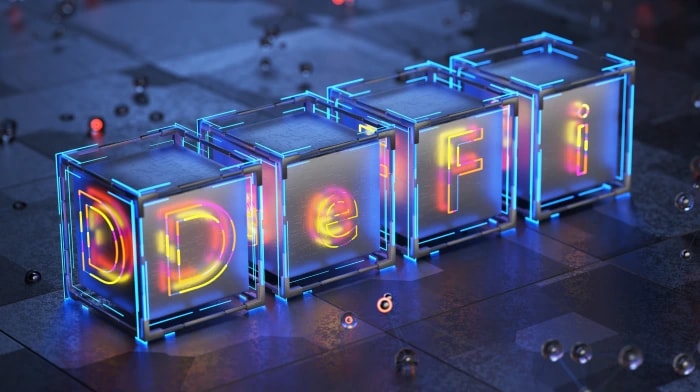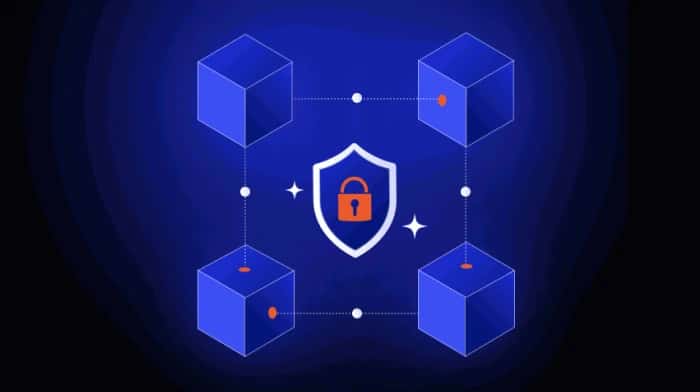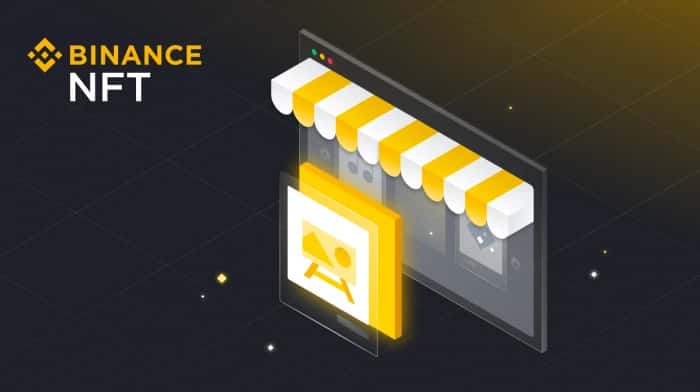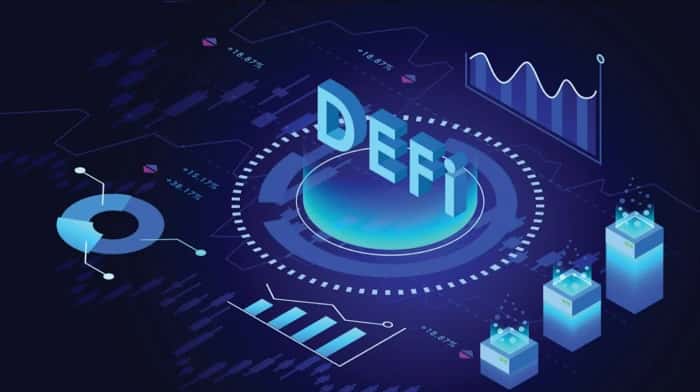
What is DeFi?
DeFi or Decentralized Finance is a game changer in the world of blockchain. It's an approach that uses distributed ledgers to rethink how financial systems work, cutting out the middlemen like banks.
This new way of doing things has the potential to seriously shake up finance. By taking out the need for controllers, DeFi is creating an open and equal playing field. The idea is to use the power of blockchain to make financial systems more direct and straightforward.
Decentralized finance is a complex space. Exploring it in detail requires a close look at its core ideas, how it works, and the many different ways it's being used. At its heart, this financial revolution relies heavily on blockchain technology, which makes the whole system possible.
Core Concepts of DeFi
Decentralized Finance is turning the way we think about services on its head. It's built on blockchain technology, which allows for an open financial system to take shape. This system operates using contracts, unlike banking where institutions are in control.
The movement covers every aspect of financial services:
- •Lending and borrowing
- •Trading and managing assets
- •Built on networks
This gives people a level of transparency and control over their finances that's never been seen before. This means that individuals can now have a view of what's happening with their money and can make decisions about how it's used without relying on institutions.
How DeFi Works
The backbone of DeFi is blockchain technology, which uses a decentralized system to keep track of every transaction in a way that's both secure and easy to see. This is different from systems where you need a central authority to okay or process transactions.
DeFi applications rely heavily on smart contracts, which essentially act as automated enforcers of agreements. When certain conditions are triggered, these contracts kick in and execute the predefined terms on their own.
What makes them so reliable is that the actual terms of the agreements are hardwired into the code, so transactions get carried out to the letter without any risk of disruption, deception or meddling from parties.
The way these systems are set up is decentralized, meaning no one organization is in charge of the network. This allows people to deal directly with each other, one on one, without having to go through the middlemen like banks.
Benefits of DeFi
The benefits of decentralized finance, or DeFi for short, are numerous and have been gaining attention in recent years. This emerging field has a lot to offer, from increased accessibility and transparency to control over transactions.
Financial Inclusion
Financial inclusion is about making sure everyone has access to services. This means people can open a bank account, get a loan, or send money to someone easily and safely.
The rise of finance, or DeFi, is bridging the gap in access. With an internet connection, people from over the world can now take part in the global financial system. This is especially life-changing in areas where banks and other traditional financial institutions are scarce or don't exist at all.
Around 1.7 billion adults worldwide don't have access to banking services according to the numbers. This is a problem that DeFi protocols might be able to help solve.
Benefits Continued
24/7 Accessibility
DeFi platforms are always open for business, which's a difference from traditional financial markets that only operate at certain times. This means people can use them to buy, sell and trade at any hour, no matter where they are in the world.
Reduced Intermediaries
The traditional financial system is built around middlemen like:
- •Banks
- •Brokers
- •Clearinghouses
All of whom take a cut for their services. DeFi does things differently. By using automated contracts, it can greatly reduce or get rid of these intermediaries altogether, which means lower costs for the people actually using the system.
Transparency
When it comes to DeFi transactions, blockchain technology lays everything out in the open. All transactions are recorded on ledgers, which means anyone can see what's going on. This transparency is key as it allows users to verify the history of transactions and how protocols are working on their own.
Enhanced Security
The blockchain's built-in security features are a plus for DeFi. For one, everything is protected by cryptography. Once something's been written to the record, it can't be erased or altered. This is especially important for contracts, which can't be tampered with or changed once they're up and running.
Global Accessibility
The global economy relies heavily on transactions that cross borders. Nowadays, these transfers can be made quickly without incurring fees thanks to DeFi. This is a change from the banking system, which often slows down international transactions and charges a lot for the privilege.
Programmable Finance
DeFi platforms are incredibly flexible, which lets developers build tools that suit purposes. This freedom to customize has spawned some products like:
- •Automated ways to maximize investment returns
- •Systems that use algorithms to make trades
- •Complicated investment vehicles that can be tailored to very specific situations
Better Investment Returns
Decentralized finance protocols can offer returns than old school savings accounts in a few ways. People can make money by:
- •Providing liquidity
- •Staking their assets
- •Farming for yields
Rapid Innovation
The fact that DeFi is open source has created a hotbed of innovation and competition. This has led to some developments in financial technology. New ideas are constantly emerging, with fresh protocols and applications popping up all the time.
DeFi Applications
DeFi has a lot of uses. It's being applied in areas from banking and lending to trading and more. This new way of doing finance is changing how things are done, creating opportunities and systems that are more open and accessible.
Lending and Borrowing Platforms
People are using DeFi lending platforms to make some money by lending out their cryptocurrency. It works by adding their assets to a pool of liquidity, where borrowers can tap into it as long as they have something valuable to put up as collateral.
This way borrowers get the funds they need and lenders earn interest on their crypto. The best part is that these platforms often offer way better rates than you'd find at a bank.
Decentralized Exchanges (DEXs)
Decentralized exchanges, or DEXs, make it possible for people to trade cryptocurrencies with each other, cutting out the middleman. This approach has some advantages:
- •It's a lot harder for anyone to snoop on your transactions
- •Since there's no authority overseeing everything, the risk of something going wrong with the trade is lower
- •The fees are often significantly cheaper than what you'd pay on an exchange
Stablecoins
Stablecoins are currencies that aim to keep their value steady by linking themselves to well-established currencies like the US dollar. This makes them a kind of middle ground between the unpredictable world of other cryptocurrencies and the reliability of traditional currency.
Yield Optimization
Yield farming is a way to make money by adding liquidity to DeFi platforms. Basically, people put their assets into pools and get paid in tokens and fees for doing so. This creates a chance to earn some money without having to lift a finger.
Automated Asset Management
DeFi platforms are making it possible for people to create and manage portfolios made up of investments. This allows them to automatically rebalance and diversify their holdings. Essentially, these systems can carry out investment plans on their own without needing anyone to step in.
Decentralized Insurance
In the world of decentralized finance, insurance protocols play a role in safeguarding users from pitfalls. They offer a safety net against:
- •Vulnerabilities in contracts
- •Failures in protocols
- •Other risks that are inherent to this new and evolving space
Digital Identity Solutions
Decentralized finance, or DeFi, has the potential to back systems that let people manage their identities online. This could mean individuals have more say in what personal info's shared and with whom, which in turn could make financial transactions more private and secure.
Cross-Border Payment Solutions
DeFi is making it easier for people to send money across borders. The fees are lower and the money gets there faster than it would with banks. This is a big deal for trade as it helps break down barriers and opens up new opportunities for international commerce.
Prediction Markets
With prediction markets, people can place bets on what's going to happen in everything from election results to sports games. It's like having a pool of information where the prices of outcomes give us clues about what might actually happen.
Real Estate Tokenization
DeFi is changing the way people invest in real estate. By breaking down properties into pieces, it's making ownership more attainable for a wider range of investors. This shift is largely due to tokenization, which allows for a kind of ownership that didn't really exist before.
The Blockchain Foundation
Blockchain technology is the backbone of DeFi. It's what makes this whole concept possible. At its core, blockchain has features that are crucial to DeFi's existence.
Transparency and Trust
Blockchain networks keep a record of every transaction on a ledger that can't be altered. This ledger is transparent, meaning anyone can check it to make sure everything is above board. It's this openness that does away with the need to put faith in some authority.
Smart Contract Automation
When it comes to agreements, self-executing smart contracts can take care of things on their own. They're set up to automatically carry out actions when specific conditions are met, which makes for dependable results.
Decentralized Architecture
The way blockchain networks are set up, with many different parts spread out, means that no one person or group has control. This helps prevent things from going wrong in one spot and reduces the chances of someone stopping or censoring information.
Permissionless Access
The thing about blockchain-based DeFi platforms is that they're pretty open. Anyone who's online can jump in and start using them without needing a thumbs up from some authority or middleman.
Immutable Records
When something's written into a blockchain, it's there for good. No going back, no editing, no deleting. This creates a record that's basically unshakeable, which's a huge boost for security and keeping people honest.
Network Interoperability
These days, blockchain networks are being built to talk to one another. This allows various DeFi applications to work together in a way, helping to create a financial ecosystem where everything is more connected.
Decentralized Data Management
Decentralized identity and data management systems are made possible by blockchain technology. This means people can keep control over their info when using financial services.
Oracle Integration
Outside information is beamed into contracts through what's called oracles. These oracles supply real-world data, which lets DeFi apps react to things that happen outside of the contract itself.
Conclusion
Decentralized Finance is a shift in the way financial services are created, developed and used. The way it uses blockchain technology, with its secure and decentralized nature, opens up doors for making financial systems more fair and inventive.
The world of finance is changing fast, with ideas and tools popping up all the time to deal with money issues. Because anyone can work on and share DeFi, it keeps getting bigger and better. New things are being developed all the time.
The evolution of blockchain and the development of frameworks are putting DeFi in a position to become a player in the global financial system. This shift could bring about change by offering people alternatives to the financial services they're used to, while promoting independence and making it easier for everyone to access these services.


